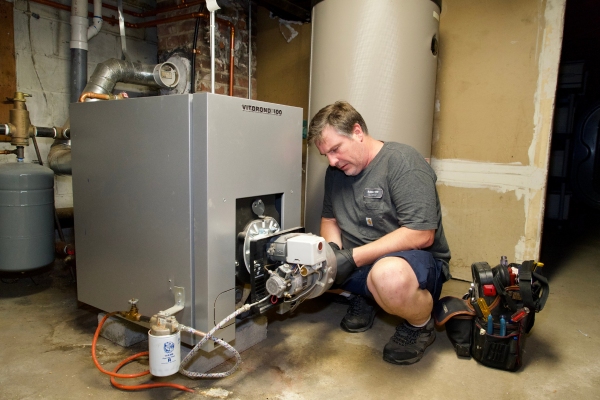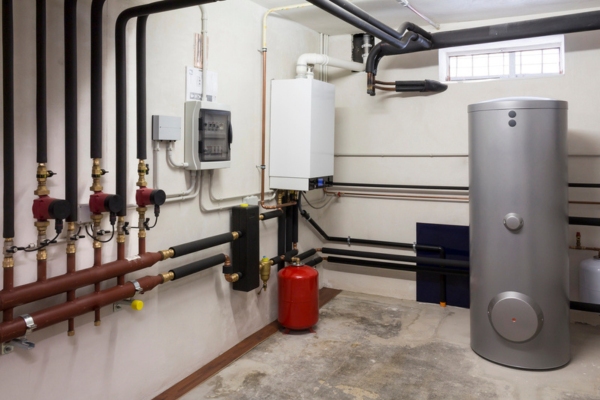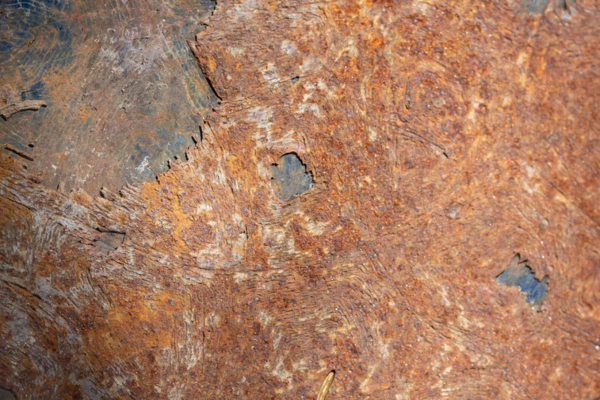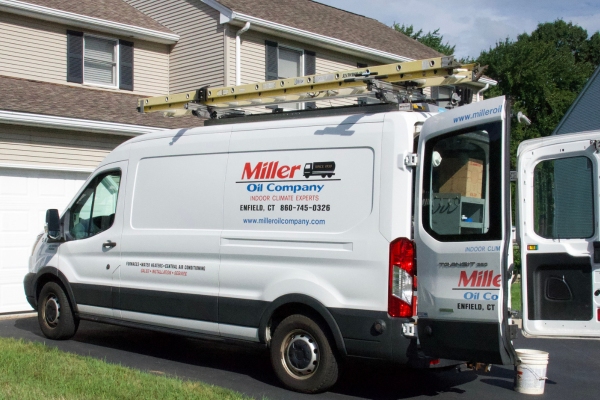What Causes Boiler Leaks? Top 5 Reasons Explained

A reliable boiler is the cornerstone of an efficient home heating setup, essential for maintaining warmth and comfort when the temperature drops. Yet, one frequent issue that can disturb this warm balance is the occurrence of water leaking from boiler. Such leaks diminish the system’s performance and pose significant safety and upkeep concerns.
In the following article by Miller Oil Company, we explore the different reasons why boilers leak, illuminate this common problem, and offer guidance on how to resolve and prevent incidents of water escaping from your boiler.
Five Common Causes of Boiler Leakage
Contents
- 1 Five Common Causes of Boiler Leakage
- 2 Indicators of Water Leaking from Boiler
- 3 Addressing Boiler Leak Symptoms Promptly
- 4 Essential Care and Upkeep for Your Boiler
- 5 DIY vs. Professional Boiler Repairs
- 6 FAQ: Boiler Maintenance and Leak Prevention
- 6.1 How Often Should I Schedule a Professional Inspection for My Boiler?
- 6.2 Can Poor Water Quality Affect My Boiler’s Health?
- 6.3 What Steps Should I Take If I Suspect Water Leaking from Boiler?
- 6.4 What Is the Role of the Expansion Tank in Preventing Boiler Leaks?
- 6.5 How Do I Know If My Boiler’s Seals and Gaskets Need Replacement?
- 7 Conclusion
- 8 Contact Miller Oil Company for Comprehensive HVAC Services

Below, we explore the crucial factors that can lead to boiler water leaks.
Issues with the Boiler Pressure Relief Valve
The pressure relief valve is critical for controlling and venting excess pressure to avoid over-pressurization of the boiler. This valve automatically opens to release water or steam when the internal pressure exceeds safe thresholds, ensuring the pressure stays within a manageable limit.
Various factors can lead to a leaking pressure relief valve, the most typical being excessive pressure accumulation in the system. This issue often stems from a defective expansion tank that fails to accommodate the expansion of water when it heats, leading to increased pressure that forces the valve to release water or steam. Additional causes might include the accumulation of sediment, a faulty valve, or incorrect installation procedures.
Overlooking problems with the pressure relief valve can present serious safety hazards. A valve that malfunctions may result in an unexpected discharge of hot steam or pressure, potentially causing substantial damage to the boiler and its nearby components. Such incidents could lead to burns, damage to property, or even catastrophic boiler explosions. Therefore, it is critical to regularly inspect and maintain the pressure relief valve and address any issues immediately to ensure safe and efficient boiler operation.
Turn to Miller Oil Company for Complete Heating Care: Maintain a cozy home with Miller Oil Company’s exceptional heating solutions. Reach out today!
Deterioration or Wear in Boiler Piping

Pipes function as vital pathways, distributing water and steam throughout the heating system. They facilitate the transfer of heated water or steam from the boiler to different components, such as radiators or baseboard heaters.
Several elements contribute to pipe corrosion, including the age of the pipes, the quality of water circulating within, and chemical interactions occurring in the system. As pipes age, they are subject to the relentless effects of high temperatures and pressure, leading to rust or scale formation.
Additionally, poor water quality—characterized by high mineral content or acidity—can hasten the corrosion process. Moreover, chemical reactions between the materials of the pipes and any additives in the water can further drive corrosion.
Corrosion in pipes can cause leaks in the boiler system, resulting in water loss and diminished efficiency. As corrosion eats away at the pipes, it compromises their structural integrity, increasing their susceptibility to failure. These leaks waste water and can damage adjacent components and property. Additionally, as corrosion builds up, it narrows the pipes, restricting the flow of water or steam, leading to poorer heat distribution throughout the system.
Issues with Boiler Seals and Gaskets
Seals and gaskets are essential barriers, ensuring a watertight and airtight connection between various boiler components. They are crucial in preventing leaks by keeping water and steam confined within their intended operational areas.
Boiler seal and gasket deterioration often result from regular wear and tear, exposure to extreme temperatures, and interactions with chemicals or minerals in the water.
Such conditions can cause:
- Progressive weakening
- Reduced flexibility
- Increased brittleness
- Heightened risk of failure
- Overall degradation
- Accumulation of deposits
- Accelerated wear and potential failure
Leaking seals and gaskets can significantly degrade a boiler’s performance and energy efficiency. When these critical components fail, they allow water or steam to leak from their designated pathways, resulting in water loss and a drop in system pressure. Consequently, the boiler must exert more effort to maintain the necessary temperature and pressure, leading to increased energy consumption and reduced efficiency. Compromised seals and gaskets may also permit air contaminants to enter the system, further impairing its functionality.
Depend on Miller Oil Company for Professional Heating Services: Keep your home comfortably warm with Miller Oil Company’s premium heating expertise. Get in touch now!
Problems with Boiler Expansion Tanks
The expansion tank in a boiler system regulates pressure fluctuations by accommodating the expansion and contraction of water during heating and cooling cycles. Issues such as a waterlogged tank due to a damaged bladder or diaphragm, malfunctioning air valves, or poor maintenance can lead to significant operational problems.
A waterlogged tank can cause:
- Excessive pressure
- Water leaks
Additionally, incorrect air pressure settings may prevent proper pressure relief throughout the heating cycle, posing safety risks and undermining the boiler’s performance and energy efficiency.
Corrosion in Boiler Heat Exchangers

Within a boiler, the heat exchanger functions by moving heat generated in the combustion chamber to the water, which is then distributed throughout the heating system. Corrosion can occur in the heat exchanger due to poor water quality and the accumulation of minerals over time.
When the heat exchanger corrodes, it may cause water leaks or release dangerous gases such as carbon monoxide into the system. These complications reduce the boiler’s efficiency and present significant health and safety risks.
Trust Miller Oil Company for Your Heating Needs: From installation to optimization, Miller Oil Company has the solutions for complete home comfort. Call us today!
Indicators of Water Leaking from Boiler
Homeowners should be alert to several signs that may indicate a boiler leak. Key indicators include:
- Water puddles or drips located near the boiler
- Water stains or discoloration on walls or ceilings close to the boiler
- A noticeable reduction in system pressure
Addressing Boiler Leak Symptoms Promptly

It’s essential to act swiftly when you notice signs of a boiler leak to prevent further damage to the boiler and its surroundings. Neglecting a boiler leak can result in:
- Extensive damage
- Lowered efficiency
- Safety risks
- Mold proliferation
- Electrical complications
Homeowners should immediately consult a professional technician for an evaluation and repair if they suspect a boiler leak to ensure safety and maintain system integrity.
Keep Cozy with Miller Oil Company’s Heating Services: Let Miller Oil Company handle your heating needs with our expert HVAC solutions. Call us now!
Essential Care and Upkeep for Your Boiler
Explore key strategies to keep your boiler running smoothly and efficiently.
Preventing Boiler Leaks: Best Practices

- Arrange for professional boiler inspections annually.
- Keep an eye on water chemistry, adjusting with additives as necessary.
- Promptly address and repair any corrosion or damage to pipes.
- Ensure the pressure relief valve is operating effectively.
- Insulate pipes and the boiler in colder regions to avert problems caused by freezing.
- Conduct regular checks on seals, gaskets, and expansion tanks for any indications of deterioration or damage.
The Significance of Professional Boiler Inspections and Maintenance
- Certified technicians are skilled at detecting issues early, preventing leaks before they start.
- Professionals ensure the boiler is cleaned and tuned to operate at peak efficiency.
- Expert evaluations confirm safety and adherence to regulatory standards.
Warmth You Can Rely On with Miller Oil Company: Experience the comfort and peace of mind that come with Miller Oil Company’s expert heating solutions. Call now!
Actions Homeowners Can Undertake for Optimal Boiler Performance and Leak Prevention
- Regularly check the boiler’s pressure and temperature.
- Be alert to any odd sounds or unusual smells.
- Respond promptly to any signs of malfunction by consulting an HVAC professional.
- Adhere strictly to the manufacturer’s instructions for maintenance, operation, and safety.
- Maintain cleanliness and proper ventilation around the boiler.
- Think about securing a preventive maintenance agreement with a reputable service provider.
DIY vs. Professional Boiler Repairs

Choosing professional HVAC technicians for boiler repairs instead of DIY approaches is vital. DIY efforts can be risky due to a lack of specialized knowledge, safety risks, and the chance of aggravating the issue.
In contrast, professional technicians provide years of experience, specialized equipment, and a thorough understanding of safety regulations to diagnose and resolve issues effectively. Their proficiency ensures repairs are done correctly, align with regulatory standards, and minimize safety hazards while preventing future problems. Opting for professional help is the most reliable and efficient method for managing boiler leaks.
Stay Cozy with Miller Oil Company: Trust our expert HVAC services to keep your home warm and comfortable. Call us today!
FAQ: Boiler Maintenance and Leak Prevention

How Often Should I Schedule a Professional Inspection for My Boiler?
It is recommended to schedule a professional boiler a yearly inspection to maintain peak performance and safety. Routine checks help detect and resolve potential problems before they become more serious.
Can Poor Water Quality Affect My Boiler’s Health?
Yes, poor water quality can significantly impact your boiler’s efficiency and longevity. High mineral content or acidity can accelerate corrosion and scaling inside the boiler, leading to leaks and other mechanical issues.
What Steps Should I Take If I Suspect Water Leaking from Boiler?
If you suspect a boiler leak, immediately contact a professional HVAC technician. Early professional intervention can prevent further damage and potentially costly repairs.
Experience Lasting Comfort with Miller Oil Company’s Heating Solutions: Enjoy consistent warmth with Miller Oil Company’s top-quality heating options. Contact us today!
What Is the Role of the Expansion Tank in Preventing Boiler Leaks?
The expansion tank helps manage the pressure within the boiler system by accommodating the natural expansion and contraction of water. Maintaining this tank is crucial to prevent over-pressurization and subsequent leaks.
How Do I Know If My Boiler’s Seals and Gaskets Need Replacement?
Signs that boiler seals and gaskets may need replacement include visible wear, such as cracks or brittleness, and unexplained leaks around the boiler connections. Regular checks during maintenance can help identify these issues early.
Conclusion
Water leaking from boiler may be caused by issues like faulty pressure valves, deteriorating pipes, compromised seals and gaskets, problematic expansion tanks, and corrosion in heat exchangers. Recognizing and swiftly addressing these signs is critical to avoid further damage to your heating system and prevent safety risks. It’s advisable to seek professional assistance for boiler repairs and ongoing maintenance. HVAC technicians possess the expertise and equipment to correctly identify and resolve these problems, ensuring your boiler operates safely and efficiently. Don’t delay; take prompt action to protect your home’s heating and comfort.
Rely on Miller Oil Company for Dependable Heating Services: Stay warm all winter with Miller Oil Company’s reliable heating solutions. Call Miller Oil Company to begin!
Contact Miller Oil Company for Comprehensive HVAC Services
Miller Oil Company is the premier heating and cooling service provider in the Greater Enfield, Connecticut area. Our team of professionally certified and experienced technicians specializes in HVAC tune-ups, repairs, installations, and replacements and is dedicated to delivering high-quality service to every client.
At Miller Oil Company, we prioritize your comfort and energy efficiency. We provide competitively priced services designed to maximize comfort and minimize energy costs. Whether you need an HVAC repair or a complete system replacement, our experts will guide you to the right solution, considering your budget. We guarantee satisfaction with every job.
Call us today to book a service appointment. We offer free, no-obligation in-home consultations, allowing you to make well-informed choices about your HVAC needs. Trust Miller Oil Company to exceed your expectations with our exceptional heating and cooling solutions! Call now!
To schedule a service appointment, contact Miller Oil Company today. We also offer free, in-home estimates. Click the link to view our service area.

Related Articles: